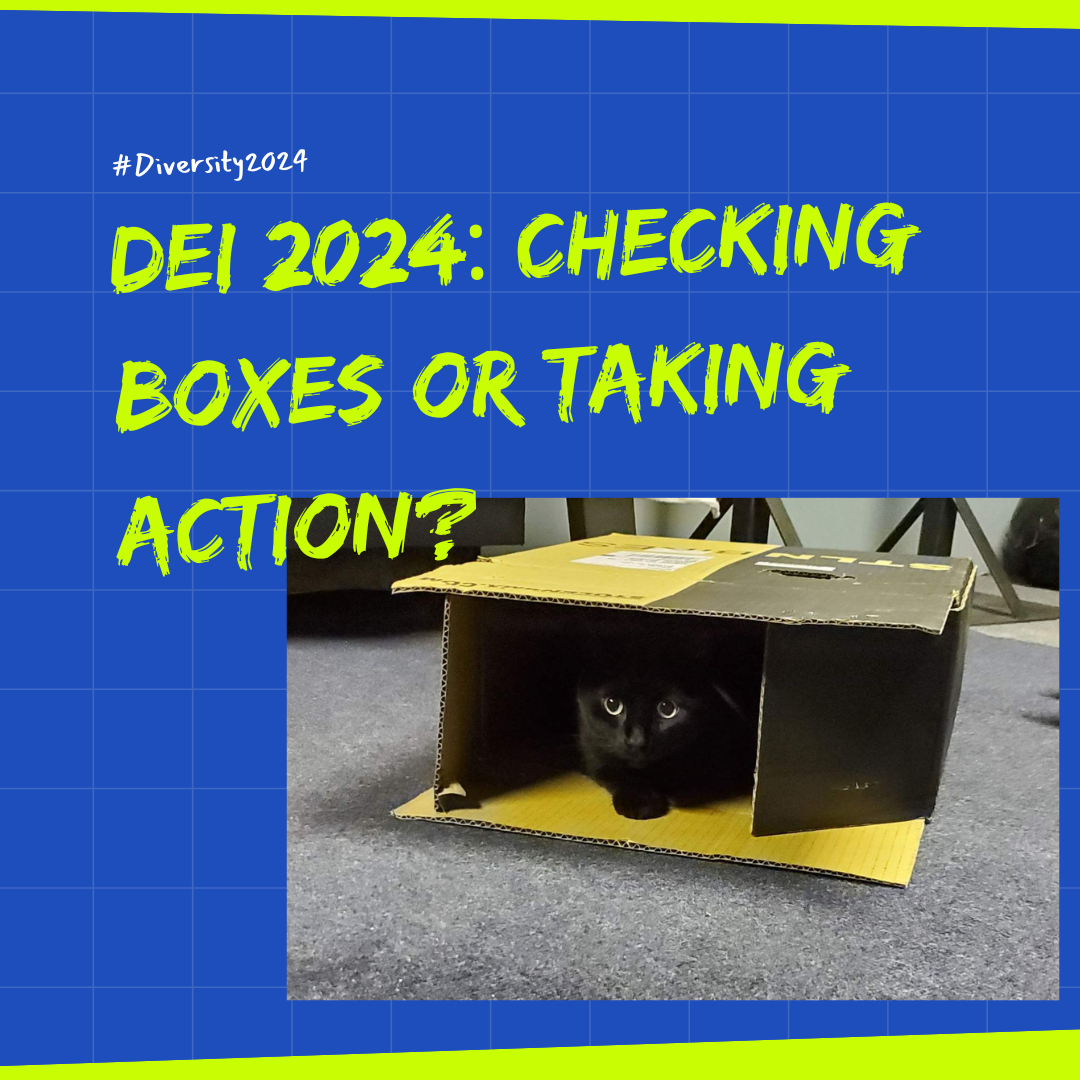
Checking Boxes or Taking Action: Forbes sheds light on the DEI 2024 forecast
I must admit, that I am not doing everything I can to push DEI initiatives. If you are that brave person, I commend you for taking action in a field that can sometimes be divisive. Your courage in doing meaningful work rather than just checking boxes is admirable. So it’s time to get off my rear and start learning. Time to start talking to strangers. Time to consume as much content as possible. Time to understand the direction of DEI initiatives. Time to take action.
According to a recent article by Forbes, 2024 will be a pivotal year for diversity, equity, and inclusion (DEI) in the workplace. The article outlines ten trends that will shape DEI initiatives in the coming year, including the rise of intersectionality, data-driven decision-making, and the significance of allyship.
In a world of Intersectionality…
Intersectionality is not a new Christopher Nolan movie starring my Texan bestie, Matthew McConaughey, exploring workplace inclusion. It’s a term that recognizes that individuals have multiple intersecting identities that influence their experiences simultaneously. As Forbes articulates, “intersectionality is not just a buzzword; it’s a framework for understanding how different forms of discrimination intersect and compound.” To delve deeper into this concept, you can watch a TedTalk about intersectionality. Understanding intersectionality reveals the complexity of our lives and the nuances of our backgrounds and journeys.
Talking to a Stranger about my bias and AI
Another significant trend is the use of data analytics to inform DEI strategies. Interestingly, I recently discussed this topic with a stranger named Benny Bennafield. Benny will be participating in a webinar titled “Exploring Bias: Leveraging AI to Transform Communication and Diversity Initiatives.” He has established a marketing agency focused on uncovering biases through AI models. In the upcoming months, we will analyze data regarding our job advertising and hiring trends to uncover biases within our company and individual decision-making processes. As the Forbes article suggests, “data-driven decision-making has revolutionized many aspects of business operations, and DEI is no exception.” Companies will increasingly rely on data to monitor progress, identify areas for improvement, and measure diversity metrics.
Teams can conquer the fear of change
Employee resource groups (ERGs) will continue to play a crucial role in fostering a sense of belonging among diverse employees. However, there will be a shift towards cross-functional collaboration between ERGs, enabling them to address broader issues and promote a more cohesive, inclusive work environment. Although at Agile we established a DEI task force last year to identify our shortcomings, we failed to empower this group adequately or grant them the freedom to conduct training autonomously. This was largely due to fear – fear of saying the wrong thing or unintentionally causing offense. Amy Stover from our Austin office is the lead of our DEI ERG. She ran aggressively into her mission to push a better understanding of DEI and build her network of influencers in this space. She jumped into new groups, including Latinas in Tech. She asked me to get more active, but I did not back up her play to push this agenda. We must overcome this fear and empower our DEI teams to learn and lead at a pace that drives meaningful change within our organization and with our clients.
Be an ally versus a chit-chatter.
Allyship will also become increasingly important in 2024. As Forbes emphasizes, “allyship is not about being a ‘savior’ or a ‘champion’; it’s about using your privilege to amplify marginalized voices and advocate for systemic change.” Companies will educate and empower allies through training programs and workshops, enabling them to effectively support DEI initiatives. This week, I began inquiring about how our team contributes to the local community as allies. Notably, our sales manager, Jessica Carroll, chairs an organization that supports marginalized students by providing them with access to free technology and early technology training to level the playing field for their future opportunities. This served as a wake-up call for me to take tangible action in my local community rather than merely discussing DEI initiatives.
These trends underscore the increasing recognition of the significance of DEI in the workplace. By embracing intersectionality, data-driven decision-making, cross-functional collaboration, and allyship, companies can cultivate a more inclusive and equitable environment for all employees. As Forbes concludes, “in 2024, DEI will be less about checking boxes and more about creating lasting change.”
Now, I must ask myself: am I merely checking boxes or actively working towards progress in DEI? If I’m only checking boxes, perhaps it’s best to leave that task to my cat, who seems to derive more enjoyment from it.
Clint Hawkins, VP of Client Services at GEE Corp. / Agile Resources



